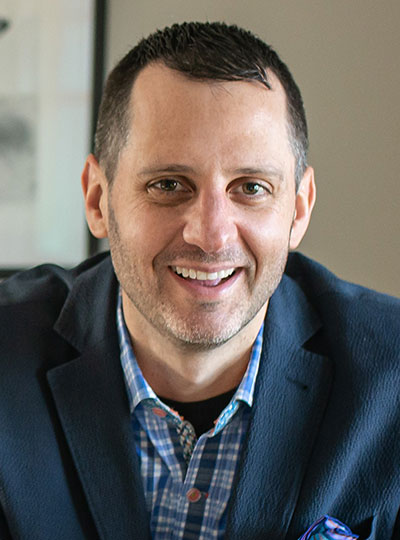|
By: Adam Greenberg, LCSW  Life is a constant journey of learning, often punctuated by both positive and negative experiences that shape who we are. While positive experiences are often celebrated, it is the negative experiences that frequently hold the most profound lessons. Understanding how to navigate these adverse moments can lead to the development of new skills, greater self-awareness, and a clearer distinction between what we can control and what we must accept.
The Power of Negative Experiences
Negative experiences can take many forms: personal failures, relationship problems, job loss, or health issues. While these events can be distressing, they often provoke reflection and growth. According to psychologist Dr. Martin Seligman, founder of positive psychology, adversity allows individuals to explore their resilience and adaptability, turning challenges into opportunities for development (Seligman, 2011).
Learning New Skills Through Challenges
Adversity can serve as a catalyst for acquiring new skills. When faced with challenges, individuals must often step outside their comfort zones and adapt to new realities. Research suggests that learning occurs most effectively when individuals are presented with real-life problems to solve (Kolb, 1984). For example, losing a job might compel someone to learn new technologies or explore different career paths, ultimately enhancing their skill set. Furthermore, overcoming obstacles fosters resilience. According to resilience theory, facing challenges develops coping strategies that can be beneficial in future struggles (Masten, 2001). This iterative process of facing difficulties builds a toolkit of skills that equip individuals to handle future adverse situations more effectively.
Gaining Clarity and Self-Awareness
Negative experiences often prompt self-reflection. Individuals may question their values, goals, and relationships, leading to a greater understanding of themselves. Research indicates that self-reflection—particularly after a setback—can enhance emotional regulation and improve decision-making (Schoenfeld & Mischel, 2016). This heightened self-awareness enables individuals to identify areas in their lives that are within their control and those that are not. For instance, after a relationship ends, an individual might explore traits in themselves that contributed to the partnership's challenges. This process can lead to more conscious choices in future relationships, aligning their actions with their core values.
Acceptance: The Key to Moving Forward
One of the essential lessons derived from negative experiences is the importance of acceptance. Recognizing what is beyond our control can alleviate anxiety and foster a mindset conducive to growth. The concept of radical acceptance, introduced by psychologist Tara Brach, emphasizes the necessity of fully accepting one's circumstances while still striving for change where possible (Brach, 2003).
The COVID-19 pandemic serves as a poignant example of collective adversity. Many people faced significant life changes and uncertainty about the future. Those who practiced acceptance were often more resilient, finding new ways to adapt, connect, and thrive despite their challenges.
Conclusion
Negative experiences, while painful, are often the pivotal moments that drive personal growth and transformation. By embracing adversity, we learn new skills, gain clarity about our values and goals, and develop the capacity to accept the aspects of life we cannot change. Ultimately, it is through navigating these difficult times that we emerge stronger and better equipped to face whatever challenges come our way. By recognizing and utilizing the lessons inherent in our negative experiences, we pave the way for a more resilient and fulfilling life journey.
References:
- Brach, T. (2003). *Radical Acceptance: Embracing Your Life With the Heart of a Buddha*. Bantam.
- Kolb, D. A. (1984). *Experiential Learning: Experience as the Source of Learning and Development*. Prentice Hall.
- Masten, A. S. (2001). Ordinary Magic: Resilience Processes in Development. *American Psychologist*, 56(3), 227–238.
- Seligman, M. E. P. (2011). *Flourish: A Visionary New Understanding of Happiness and Well-being*. Free Press.
- Schoenfeld, T. J., & Mischel, W. (2016). The Role of Self-Reflection in Enhancing Self-Control and Resilience. *Behavioral Research and Therapy*, 90, 10-20.
About the Author...
Mr. Greenberg is unwavering in his dedication to his clients' well-being, expertly guiding them through challenges such as anxiety, depression, communication difficulties, and relationship conflicts. He offers not only practical coping strategies but also the empathetic support that fosters personal growth and healing.
What distinguishes Mr. Greenberg is his unique ability to weave humor into the therapeutic process, empowering clients to reframe adversity with positivity and resilience. His genuine passion for helping others, paired with a dynamic and diverse career path, enables him to forge meaningful connections with individuals from all walks of life.
A proud graduate of Fordham University’s Graduate School of Social Services, where he earned honors, Mr. Greenberg’s journey to becoming a therapist is as inspiring as it is diverse. Having held over 15 roles across multiple industries, his rich professional background complements his clinical expertise. Additionally, his extensive travels and cultural experiences have cultivated a deep understanding of and empathy for individuals from varied ethnic and cultural backgrounds.
This unique blend of life experience, professional versatility, and clinical skill makes Mr. Greenberg a compassionate, relatable, and highly effective therapist.
Click here to contact or learn more about Adam Greenberg Last Update: 1/13/2025
|

